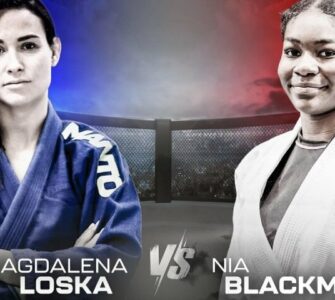In Brazilian Jiu-Jitsu, few names resonate as prominently as John Danaher when it comes to innovative grappling techniques and training methodologies. Recently, Danaher made a bold statement a few years back, regarding the stylistic evolution of 10th Planet Jiu-Jitsu, asserting that its modern incarnation is essentially a clone of the style developed by his own team.
Danaher stated on an IG Post:
Eddie Cummings must step up to face the challenge of EBI 10 at a new weight of 135 pounds – against the man we consider the best of Eddie Bravo’s students – Geo Martinez. He is very interesting as an opponent because he is one of the few remaining 10th planet athletes who is really skilled in the true 10th planet system based around rubber guard/ lockdown half guard/twister rather than the modern 10th planet athletes style which is basically cloned after our own style.
This claim provides an intriguing point of departure for examining the dynamics of stylistic development and influence within the sport of BJJ.
Understanding the Styles
Firstly, it’s essential to understand the distinctive features of the styles in question. John Danaher, a revered figure in the martial arts community, has been instrumental in the rise of the “Danaher Death Squad,” known for their precise and systematic approach to no-gi grappling. This style emphasizes control, leg locks, and a highly analytical approach to combat.
Conversely, 10th Planet Jiu-Jitsu, founded by Eddie Bravo, is renowned for its unorthodox no-gi focus, incorporating elements like the rubber guard, twister, and other innovative positions that are less common in traditional Brazilian Jiu-Jitsu. Bravo’s system was initially developed to address what he saw as deficiencies in the traditional BJJ approach, particularly in the context of mixed martial arts (MMA).
Analyzing Danaher’s Claim
When John Danaher states that the modern 10th Planet style is cloned from his own, it sparks a discussion on several fronts. On one hand, this could be seen as an acknowledgment of the effectiveness and influence of the techniques developed by his team. On the other, it could stir controversy by suggesting a lack of originality in the evolution of 10th Planet’s techniques.
To assess the validity of Danaher’s claim, it’s important to look at the timelines and key developments in both styles. Danaher’s influence in the competitive BJJ community is well-documented, with numerous high-profile competitors adopting his methodologies. Meanwhile, 10th Planet Jiu-Jitsu has also evolved, potentially incorporating successful strategies and techniques from various sources, including those popularized by Danaher’s team.
The Broader Impact on BJJ
This discussion extends beyond the technicalities of grappling styles into the philosophy of martial arts evolution. Martial arts have historically evolved through cross-pollination. Techniques, strategies, and philosophies are often shared, adapted, and sometimes integrated wholesale into other systems. In this light, Danaher’s comments might highlight a broader trend of convergence in competitive BJJ, where effective techniques are rapidly assimilated across different schools and styles.
Moreover, the statement could reflect on the increasingly analytical approach taken by many BJJ practitioners today. The meticulous study of leverage, mechanics, and opponent behavior is something that both Danaher and Bravo emphasize, albeit in different ways. This analytical trend is likely shaping the future of BJJ, leading to a sport that is more scientific and perhaps, convergent in techniques and strategies.
Whether John Danaher’s assertion that the modern 10th Planet style is a clone of his own is accurate, or simply a provocative comment, it undeniably stirs valuable debate on the nature of innovation in martial arts. It challenges practitioners and enthusiasts to think about how styles influence each other and what it means to be truly original in a sport that is as dynamic and competitive as Brazilian Jiu-Jitsu. As the sport continues to evolve, the interplay of different styles and the ongoing dialogue between their leading proponents will undoubtedly shape its future trajectory.


















